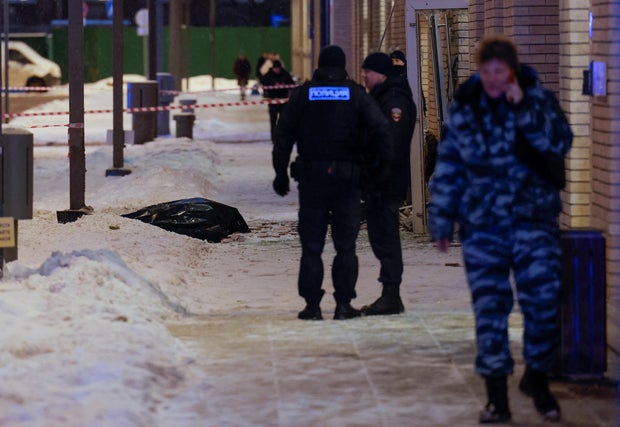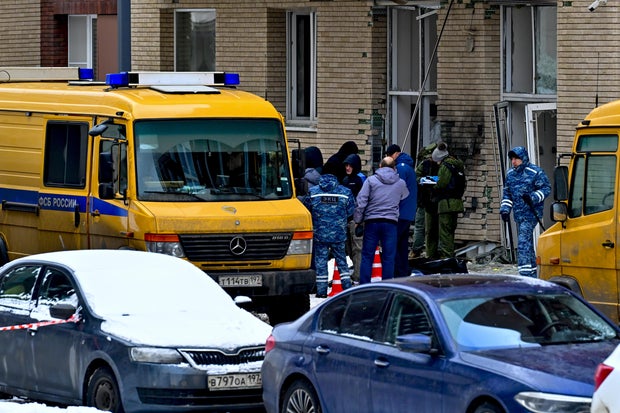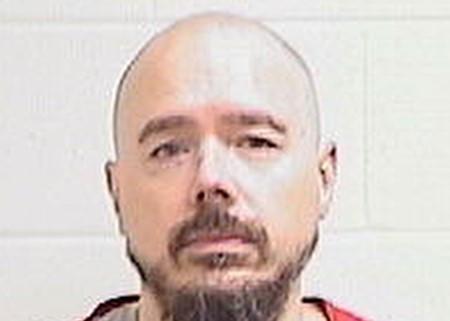CBS News
Why is the Iowa caucus so important? What to know about today’s high-stakes vote

Republicans are in a fierce competition as they’ve crisscrossed all Iowa’s 99 counties ahead of Monday’s caucuses. Despite extensive efforts by several prominent Republicans to court Iowans, it appears they’ve fallen short as the state’s caucuses approach, with former President Donald Trump maintaining a substantial lead over his rivals in the polls.
But as the first state to hold any nominating contests, Iowa acts as a litmus test for candidates vying for their party’s nomination. And despite Trump’s lead, Iowans have found themselves inundated with GOP candidates fervently pleading their cases.
When are the Iowa caucuses?
The Republican Party will hold its caucuses on Monday, Jan. 15. Iowa Democrats are holding a caucus on the same day, but are opting for voters to choose their candidate entirely by mail-in ballot this election cycle and will release the results on Super Tuesday on March 5.
Following the chaotic events of Democratic 2020 caucuses, Iowa Democrats had overhauled their caucus and presidential delegate selection process to ensure an indisputable winner.
Chip Somodevilla / Getty Images
President Biden and his team will instead prioritize South Carolina as the initial state in the lineup, succeeded by New Hampshire and Nevada a week later, with Michigan following. Originally, the plan included Georgia holding a primary just before Michigan, but Democratic efforts to advance their date faced resistance from Republicans in the state.
But New Hampshire has opted to maintain its first-in-nation primary status and will hold its primary on Jan. 23, and Mr. Biden will not be on the ballot. His team has led a write-in campaign in the state.
What is the difference between a caucus and a primary?
A caucus involves a more complex process where participants gather openly, engaging in discussions and voting to express their support for a particular candidate. Unlike primaries, caucuses require voters to physically attend specific meetings, which demands a higher level of commitment — meaning there is s lower voter turnout. The process of assigning delegates in caucuses may differ, adding greater flexibility to the overall method.
Conversely, in a primary election, voters participate by casting their ballots in private to choose their preferred candidate. This process is akin to a general election, allowing voters to select their candidate in a more straightforward manner. Primary elections generally witness higher voter participation due to their accessibility, with voters able to cast their ballots throughout the day. Delegates in primaries are typically allocated proportionally, reflecting the percentage of votes each candidate receives.
Primaries offer a simpler and more accessible voting process, resulting in higher voter participation, while caucuses involve a more involved and participatory approach, requiring voters to actively engage in discussions. The decision hinges on the rules and preferences set by the state party.
Why do presidential candidates care so much about the Iowa caucus?
Historically, presidential candidates have looked to the Iowa caucus to help launch themselves to nominee status.
But the Iowa caucus hasn’t always gone on to be the best predictor of who will be the party’s nominee, even less so at predicting who will win the presidency. The state is largely White and conservative and not entirely representative of the U.S. population.
Iowa Republicans selected Mike Huckabee in 2008, Rick Santorum in 2012 and Ted Cruz in 2016 — none of whom went on to clinch the nomination.
Some candidates who faced defeat in Iowa went on to secure victory, including Ronald Reagan in 1980, George H.W. Bush in 1988, and Trump in 2016.
Since its inception in 1972, only three presidential candidates who triumphed in the Iowa caucuses have ascended to the presidency: Democrats Jimmy Carter in 1976 and Barack Obama in 2008, and Republican George W. Bush in 2000.
Still, the caucus’ outcome frequently provides an outsized advantage to winners and those who exceed expectations, often narrowing down the field by prompting underperforming candidates to exit the race.
What can the Iowa caucus results tell us about 2024?
Kyle Kondik, an elections analyst and managing editor of Sabato’s Crystal Ball at the University of Virginia Center for Politics, posits that Iowa serves as a more accurate snapshot of the current Republican Party. This is due to the demographic makeup, specifically the inclusion of religious and blue-collar voters.
In contrast, Kondik noted that the results of the New Hampshire primary on Jan. 23 may offer less insight into the overall success of the Republican party. This is because there’s a larger share of moderate and independent voters in the state.
So even if Trump loses New Hampshire, “I don’t think it’s necessarily some sort of huge problem for him,” Kondik said.
Now, he said, if former U.S. ambassador to the U.N. Nikki Haley were to win New Hampshire and then South Carolina a month later, “that’s where this thing maybe gets interesting,” given that both states have electorates that more closely mirror the rest of the U.S.
But if Trump were to win both Iowa and New Hampshire, it’s unlikely any of the other candidates could continue on, he said.
What are Iowans saying?
As Iowans brave the snowstorms leading up to the caucuses, many are ready to navigate the weather and cast their votes on Monday.
“I appreciate, people should appreciate when they live in Iowa, that we have so much exposure to the candidates firsthand, you really do get to be right there and ask them questions and get to see the person you know, even behind the scenes, not just in front of the camera. So I hope people pay attention and go out and caucus. It’s extremely important. You get to vote, you know, with a paper ballot right in the room, it gets counted right in front of you. And you just know the answer of who came out ahead and whatnot right there that night,” said Laurie Stiles from Johnston, Iowa.
For some who have never caucused before, they’re looking forward to hearing from other voters.
“I’ve never caucused before. But this time, I really want to hear what other people have to say, what they’re thinking,” said Ken Geoghegan, an undecided voter in Iowa.
Even though the Iowa caucus may not serve as a crystal ball for the entire presidential election year, Iowans still perceive themselves as key players in the process, contributing to the narrowing down of the candidate field.
“We’re still faith, family and friends first, right? And I think we do a very good job of leading the nation,” said Eric Vaske, a voter from Manchester, Iowa.
Taurean Smalls, Aaron Navarro and Olivia Rinaldi contributed.
CBS News
Russia says suspect detained in killing of Gen. Igor Kirillov, head of Russian chemical weapons unit

Moscow — Russia’s security service said Wednesday that it had detained a suspect in the killing of a senior general in a Moscow bomb blast. The suspect was described as an Uzbek citizen whom the agency said had been recruited by Ukrainian intelligence services.
Ukrainian security sources told CBS News on Monday that the Security Service of Ukraine (SBU) was behind the explosion that killed Lt. General Igor Kirillov. The claim couldn’t be independently verified, but Russian officials quickly vowed to take revenge against Ukraine’s leaders.
Russia’s Federal Security Service didn’t name the suspect, but it said he was born in 1995. According to an FSB statement, the suspect said he was recruited by Ukrainian special services.
AFPTV / AFP via Getty Images
“Kirillov was a war criminal and an absolutely legitimate target, since he gave orders to use prohibited chemical weapons against the Ukrainian military,” an informed source in the SBU asserted to CBS News. “Such an inglorious end awaits everyone who kills Ukrainians. Retribution for war crimes is inevitable.”
Kirillov was killed by a bomb hidden in an electric scooter outside his apartment building in Moscow, a day after Ukraine’s security service leveled criminal charges against him. His assistant also died in the attack.
The FSB said the suspect had been promised a reward of $100,000 and permission to move to a European Union country in exchange for killing Kirillov. It said that, acting on instructions from Ukraine, the suspect traveled to Moscow, where he picked up a homemade explosive device. He then placed the device on an electric scooter and parked it at the entrance of the residential building where Kirillov lived.
The suspect then rented a car to monitor the location and set up a camera that livestreamed video from the scene to his handlers in the central Ukrainian city of Dnipro. When Kirillov was seen leaving the building, the suspect detonated the bomb.
According to the FSB’s statement, the suspect faces “a sentence of up to life imprisonment.”
Kirillov, 54, was the chief of the Russian military’s radiological, biological and chemical protection forces. Either Kirillov himself or his military unit were sanctioned by several countries, including the U.S., Britain and Canada, for the alleged use of chemical weapons on the battlefield in Ukraine. On Monday, Ukraine’s SBU had opened a criminal investigation against him, accusing him of directing the use of banned chemical weapons.
Maxim Shemetov/REUTERS
Ukraine’s SBU has said it recorded more than 4,800 occasions when Russia used chemical weapons on the battlefield since President Vladimir Putin launched his full-scale invasion in February 2022. In May, the U.S. State Department announced sanctions against Kirillov’s unit, saying the U.S. had recorded the use of chloropicrin, a poison gas first deployed in World War I, against Ukrainian troops.
Russia has denied using any chemical weapons in Ukraine and, in turn, has accused Kyiv of using toxic agents in combat, and Kirillov was allegedly behind the spread of that propaganda.
Kirillov, who had been in his post since April 2017, was accused by the U.S. government of helping to spread disinformation about biological weapons and research.
In March 2023, about a year into Russia’s full-scale invasion, the U.S. State Department said Kirillov had “significantly increased his media engagement” to issue repeated, baseless claims that the U.S. government had been involved in creating both the mpox virus and COVID-19, and that the U.S. “is developing biological weapons able to selectively target ethnic groups.”
“The U.S. Government is concerned that this false narrative may be a prelude for a false-flag operation, where Russia itself uses biological, chemical, or nuclear weapons in Ukraine, and then attempts to blame it on Ukraine and/or the United States,” the State Department said at the time.
Sefa Karacan / Anadolu via Getty Images
The bomb used in Tuesday’s attack was triggered remotely, according to Russian news reports. Images from the scene showed shattered windows and scorched brickwork.
Russia’s top state investigative agency said it’s looking into Kirillov’s death as a case of terrorism, and officials in Moscow vowed to punish Ukraine.
CBS News
Suspect detained in killing of Gen. Igor Kirillov, head of Russia’s biological, chemical forces in Moscow blast

Moscow — Russia’s security service said Wednesday that it has detained a suspect in the killing of a senior general in Moscow.
The suspect was described as an Uzbek citizen recruited by Ukrainian intelligence services.
Russia’s Federal Security Service, or FSB, didn’t name the suspect, but said he was born in 1995. According to an FSB statement, the suspect said he was recruited by Ukrainian special services.
Ukrainian security sources had told CBS News Monday that the Security Service of Ukraine (SBU) killed Kirillov in a special operation. The claim couldn’t be independently verified, but Russian officials quickly vowed to take revenge against Ukraine’s leaders.
AFPTV / AFP via Getty Images
Lt. Gen. Igor Kirillov was killed Tuesday by a bomb hidden in a scooter outside his apartment building in Moscow, a day after Ukraine’s security service leveled criminal charges against him. His assistant also died in the attack. A Ukrainian official said the service carried out the attack.
The FSB said the suspect had been promised a reward of $100,000 and permission to move to a European Union country in exchange for killing Kirillov.
The agency stated that, acting on instructions from Ukraine, the suspect traveled to Moscow, where he picked up a homemade explosive device. He then placed the device on an electric scooter and parked it at the entrance to the residential building where Kirillov lived.
The suspect then rented a car to monitor the location and set up a camera that livestreamed footage from the scene to his handlers in the central Ukrainian city of Dnipro. Once Kirillov was seen leaving the building, the suspect detonated the bomb.
According to the FSB’s statement, the suspect faces “a sentence of up to life imprisonment.”
Kirillov, 54, was the chief of the military’s nuclear, biological and chemical protection forces and was under sanctions from several countries, including the U.K. and Canada, for his actions in Moscow’s military operation in Ukraine. On Monday, Ukraine’s Security Service, or SBU, opened a criminal investigation against him, accusing him of directing the use of banned chemical weapons.
Russia has denied using any chemical weapons in Ukraine and, in turn, has accused Kyiv of using toxic agents in combat.
Kirillov, who took his current job in 2017, was one of the most high-profile figures to level those accusations. He held numerous briefings to accuse the Ukrainian military of using toxic agents and planning to launch attacks with radioactive substances – claims that Ukraine and its Western allies rejected as propaganda.
The bomb used in Tuesday’s attack was triggered remotely, according to Russian news reports. Images from the scene showed shattered windows and scorched brickwork.
Sefa Karacan / Anadolu via Getty Images
Russia’s top state investigative agency said it’s looking into Kirillov’s death as a case of terrorism, and officials in Moscow vowed to punish Ukraine.
CBS News
Indiana conducts first execution in 15 years, puts quadruple killer to death

Michigan City, Indiana — An Indiana man convicted of killing four people including his brother and his sister’s fiancé decades ago was put to death Wednesday, without any independent witness, marking the state’s first execution in 15 years.
Joseph Corcoran, 49, was pronounced dead at 12:44 a.m. CST at the Indiana State Prison in Michigan City, Indiana, the Indiana Department of Correction said in a statement. CBS Indianapolis affiliate WTTV reports that officials said the execution process started just after midnight.
Indiana Department of Corrections via AP
Corcoran was scheduled to be executed with the powerful sedative pentobarbital, but the state agency’s statement did not mention that drug. Corcoran’s execution was the 24th in the U.S. this year.
According to WTTV, the statement said Corcoran told officials his last words were, “Not really. Let’s get this over with.”
He was convicted in the July 1997 shootings of his brother, 30-year-old James Corcoran, his sister’s fiancé, 32-year-old Robert Scott Turner, and two other men, Timothy G. Bricker, 30, and Douglas A. Stillwell, 30.
According to court records, before Corcoran fatally shot the four victims he was under stress because the forthcoming marriage of his sister to Turner would necessitate moving out of the Fort Wayne, Indiana, home he shared with his brother and sister.
While jailed for those killings, Corcoran reportedly bragged about fatally shooting his parents in 1992 in northern Indiana’s Steuben County. He was charged in their killings but acquitted.
Last summer, Gov. Eric Holcomb announced plans to resume state executions following a yearslong hiatus marked by a scarcity of lethal injection drugs nationwide.
The state provided limited details about the execution process, and no media witnesses were permitted under state law.
Indiana and Wyoming are the only two states that do not allow members of the media to witness state executions, according to a recent report by the Death Penalty Information Center.
Corcoran’s attorneys had fought his death penalty sentence for years, arguing he was severely mentally ill, which affected his ability to understand and make decisions. This month, his attorneys asked the Indiana Supreme Court to stop his execution but the request was denied.
Corcoran exhausted his federal appeals in 2016. But his attorneys asked the U.S. District Court of Northern Indiana last week to stop his execution and hold a hearing to decide if it would be unconstitutional because Corcoran has a serious mental illness. The court declined to intervene Friday, and the U.S. Court of Appeals for the 7th Circuit did the same Tuesday.
Corcoran’s attorneys then asked the U.S. Supreme Court issue an emergency order halting his execution, but the high court denied their request for a stay late Tuesday, ending Corcoran’s options with the courts.
His sole remaining hope then became Holcomb, who could have commuted Corcoran’s death sentence. But that commutation never came and the execution proceeded as scheduled.
WTTV says Holcomb issued a statement saying Corcoran’s case “has been reviewed repeatedly over the last 25 years – including 7 times by the Indiana Supreme Court and 3 times by the U.S. Supreme Court, the most recent of which was tonight. His sentence has never been overturned and was carried out as ordered by the court.”
Indiana’s last state execution was in 2009 when Matthew Wrinkles was put to death for killing his wife, her brother and sister-in-law in 1994.
Since then, 13 executions were carried out in Indiana, but those were initiated and performed by federal officials in 2020 and 2021 at a federal prison in Terre Haute.
State officials have said they couldn’t continue executions because a combination of drugs used in lethal injections had become unavailable.
For years, there has been a shortage across the country because pharmaceutical companies have refused to sell their products for that purpose. That’s pushed states, including Indiana, to turn to compounding pharmacies, which manufacture drugs specifically for a client. Some use more accessible drugs such as the sedatives pentobarbital or midazolam, both of which, critics say, can cause intense pain.
Religious groups, disability rights advocates and others have opposed his execution. About a dozen people, some holding candles, held a vigil late Tuesday to pray outside the prison, which is surrounded by barbed wire fences in a residential area about 60 miles east of Chicago.
“We can build a society without giving governmental authorities the right to execute their own citizens,” said Bishop Robert McClory of the Diocese of Gary, who led the prayers.
Other death penalty opponents also demonstrated outside the prison Tuesday night, some holding signs that read “Execution Is Not The Solution” and “Remember The Victims But Not With More Killing.”
“There is no need and no benefit from this execution. It’s all show,” said Abraham Borowitz, director of Death Penalty Action, his organization that protests every execution in the U.S.
Prison officials said in a brief statement Tuesday evening that Corcoran “requested Ben & Jerry’s ice cream for his last meal.”
Corcoran said farewell late Tuesday to relatives, including his wife, Tahina Corcoran, who told reporters outside the prison that they discussed their faith and their memories, including attending high school together. She reiterated her request for Indiana’s governor to commute her husband’s death sentence.
Tahina Corcoran said her husband is “very mentally ill” and she didn’t think he fully grasped what was happening to him.
“He is in shock. He doesn’t understand,” she said.













